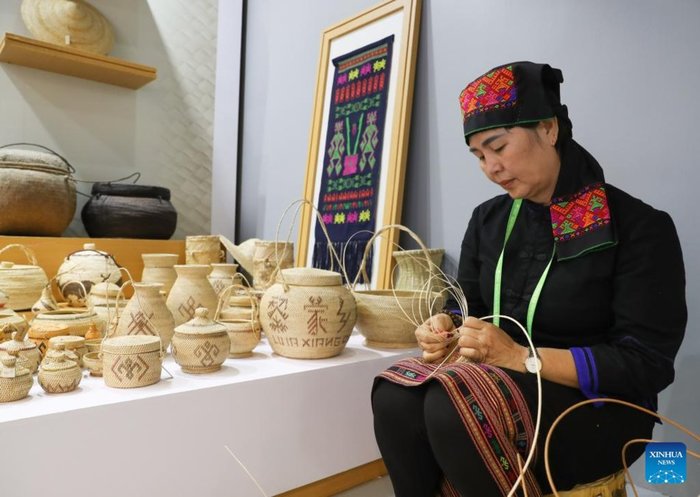Big Data Proves Its Worth
Forensic expert Shi Rong is keen to stress the crucial role big data technology, and its wide application, plays in enhancing public security.
Born in 1968, Shi is now the deputy chief of the criminal investigation unit at the Guiyang municipal bureau of public security in Guizhou Province.
When a murder case is being investigated, she and her colleagues need to examine the victim's body and the crime scene to provide evidence for the court trial.
In the past 28 years, she has worked on more than 3,000 crime scenes and filed over 2,000 forensic documents. She says in 2018, she worked on a single case for 28 hours continuously.
While dealing with a heavy workload and the flow of information related to cases, she says she realized the importance of using big data in public security systems.
"In my everyday work, when investigating cases, we need to use big data systems as a means of scientific support to track and find the suspects," Shi says. "Its utilization in enhancing general public security and serving the people is much broader, encompassing different aspects such as traffic, exit and entry, and population management."
The Guiyang bureau of public security has upgraded its database in the past few years. Official statistics show the number of criminal cases in the city has consistently declined over the past seven years. Over 95 percent of Guiyang residents have expressed a sense of security in annual surveys since 2015, and the figure reached a record high of 99.05 percent in 2019.
Since Shi became a deputy to the 13th National People's Congress in 2018, she has been paying closer attention to local big data construction and proposing relevant suggestions at the annual two sessions in Beijing.
Last year, she spotted a few issues with the local data systems of government organizations after conducting research on the building of databases at a grassroots level.
"The data-sharing and data integration across departments and regions is insufficient, and the application of big data systems at county level is not extensive," Shi adds.
Based on these findings, at this year's two sessions, she suggested bringing laws for data integration across government organizations, standardizing data platforms to offer convenience to the people and supporting big data infrastructure construction in less-developed regions.
Since the COVID-19 outbreak, big data systems at a local level have also proved useful in disease control. The Guiyang bureau of public security has been cooperating with local disease control and prevention centers on contact-tracing.
"Based on the activities of confirmed cases, we need to locate people who have had close contact with patients as quickly as possible, many of whom might not even know the risks they have been exposed to. The big data system can help us find these people more effectively," Shi says.
According to official statistics, by April 15, the bureau had registered 127,000 people who came to Guizhou from other parts of the country and identified 2,712 people with a fever.
The thorough health-screening also helped the bureau identify criminal suspects who were on the run. Of Guiyang's 49 fugitives, 13 were apprehended during the process.
Shi also delivered face masks and disinfectants to villages that lacked medical supplies.
"She sets high standards for herself, with self-restraint and a rigorous work attitude. She also has strict requirements for her colleagues," says Zhang Ying, who has worked with Shi for more than 20 years. "She also likes to cook and dance, and at the end of every year, she invites us for dinner at her home. To our team, she is an 'iron lady' at work and a big sister in life."
(Source: China Daily)
Please understand that womenofchina.cn,a non-profit, information-communication website, cannot reach every writer before using articles and images. For copyright issues, please contact us by emailing: website@womenofchina.cn. The articles published and opinions expressed on this website represent the opinions of writers and are not necessarily shared by womenofchina.cn.








 WeChat
WeChat Weibo
Weibo 京公网安备 11010102004314号
京公网安备 11010102004314号